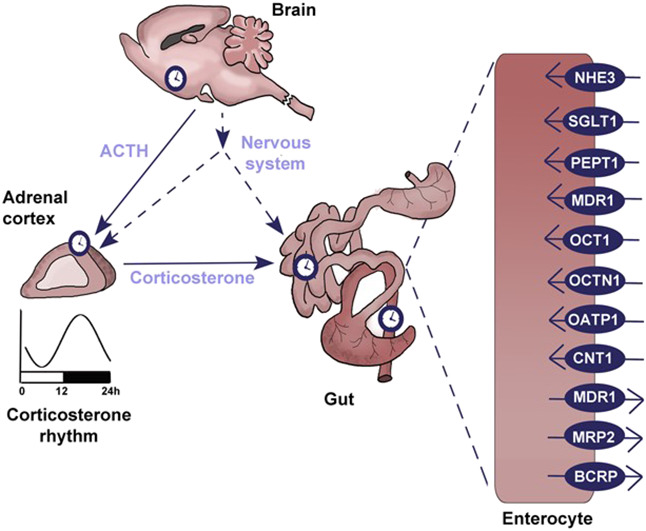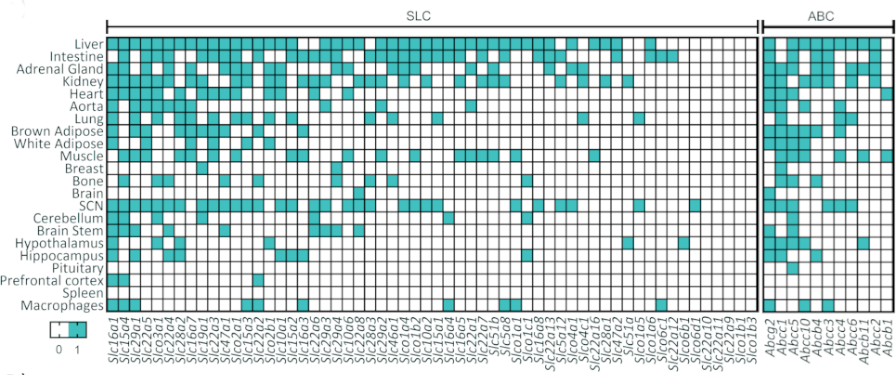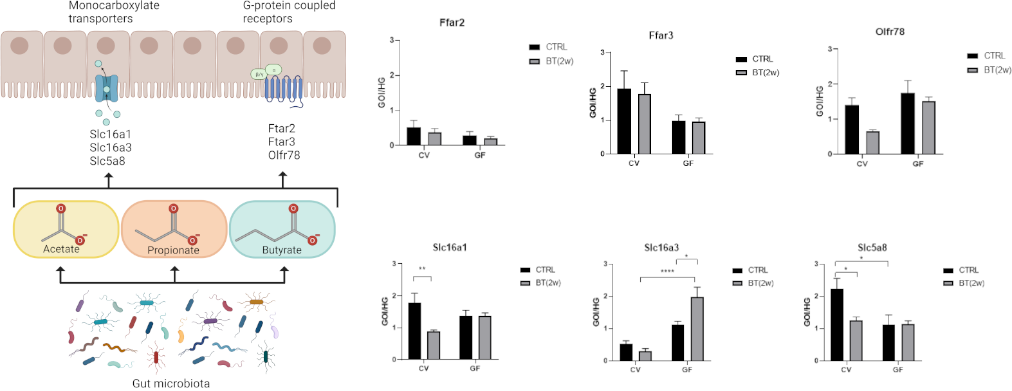Regulation of intestinal transport
The intestinal epithelia is occupied by abundance of diverse transport systems, that primary ensures nutrient absorption but also mediate communication between microbiota and host. Expression of these transport systems is regulated by many factors including hormones, neural circuits and food intake. One of the goals of our investigation is to identify the effect of corticosteroid hormones, circadian timing system and microbiota on specific transport systems in the intestine with the emphasis on the effect of short-chain fatty acids (SCFA) produced by commensal bacteria on SCFA transport systems (Slc5a8, Slc16a1, Slc16a3) and SCFA signaling in the intestine (receptors for SCFA Ffar2 and Ffar3).
|
|
|
Schematic representation of interactions between brain, glucocorticoids and intestine, that might influence affect expression of intestinal transporters (Vagnerova et al. 2019). |
|
|
|
Transcriptional profiles of genes encoding transporters from the jejunum of sham-operated (CTRL) and adrenalectomized (ADX) rats. The data demonstrate the role of corticosteroids in regulation of intestinal transporters. (Vagnerova et al. 2019). |
|
|
|
Circadian rhythmicity is exhibited by a number of drug solute carrier (SLC) and ATP-binding cassette (ABC) transporters in various tissues, particularly in the liver, intestine and kidney (Pacha et al. 2021). |
|
|
|
Both microbiota and butyrate shape the expression of short chain fatty acid (SCFA) transporters and SCFA receptors in the intestine (unpublished data) |



